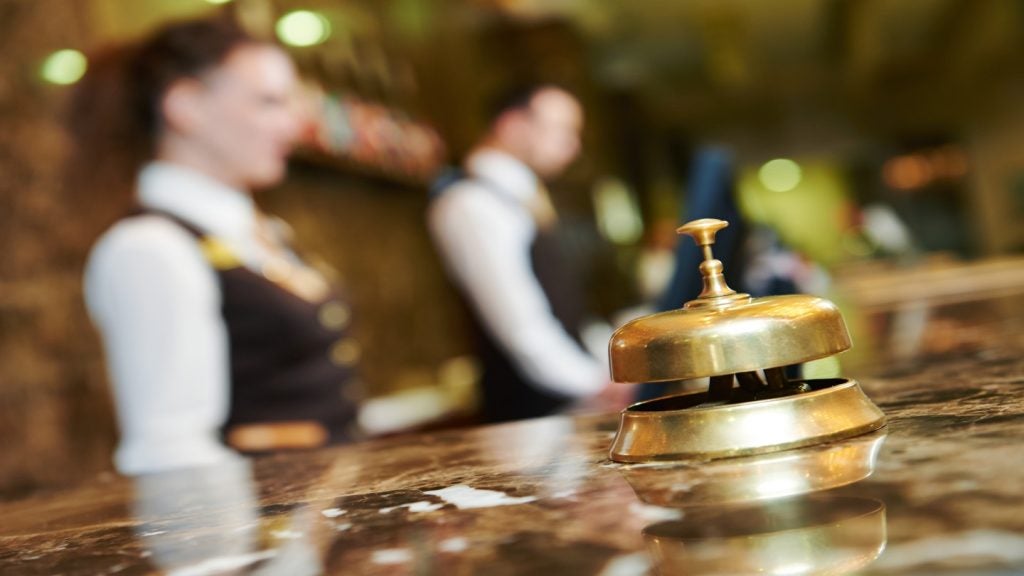
Sustainability is the buzz-word of the moment. While being green was once a niche statement, it is now fast becoming a business necessity – as well as a razor-sharp marketing tool – for hotels across the world. But a new set of eco priorities have thrown up a tangled web of questions for an industry not known for its environmental awareness. What exactly is meant by ‘sustainable’? What does it take to run an environmentally sound hotel business? Do consumers really care one way or the other?
Research by TripAdvisor, the world’s largest online travel community, indicates they do. A recent ecotourism survey of more than 1,000 international travellers found that 40% thought environmentally friendly tourism is a factor when making travel plans. Just over a third said they would pay more to stay at an environmentally friendly hotel, with 12% prepared to pay a premium of up to 20%. A surprising 38% said they had already stayed at a green hotel.
Despite fast-growing consumer awareness and demand for all things eco, evidence suggests the hotel sector lags behind many other industries in terms of minimising its environmental impact. Figures from environmental guidance website www.netregs.gov.uk indicate that 40% of small and medium-sized enterprises (SMEs) across all sectors had an environmental policy in place by 2007.
However, the figure for hotels and restaurants is only 30%. This is the case despite the fact that 72% of hotel and restaurant SMEs think environmental good practice reduces operating costs, and 60% think it improves competitiveness.
WEST COAST ECO-HOTEL
See Also:
Stefan Mühle is general manager of San Francisco’s first officially recognised ‘green’ hotel: the Orchard Garden Hotel – the fourth hotel in the world to receive Leadership in Energy & Environmental Design accreditation. The certification stipulates the hotel’s structure and construction process must conform to strict environmental standards.
How well do you really know your competitors?
Access the most comprehensive Company Profiles on the market, powered by GlobalData. Save hours of research. Gain competitive edge.

Thank you!
Your download email will arrive shortly
Not ready to buy yet? Download a free sample
We are confident about the unique quality of our Company Profiles. However, we want you to make the most beneficial decision for your business, so we offer a free sample that you can download by submitting the below form
By GlobalDataThe 86-room business and leisure hotel boasts an average occupancy of 80% and has attracted rave reviews since it opened in November 2006. Guests might not easily distinguish the Orchard Garden from any other boutique hotel: up-to-the-minute mod cons include in-room iPod docking stations, free internet Wi-Fi connection and high definition LCD televisions.
But as well as the usual facilities, the hotel boasts an impressive roll-call of eco innovations.
Mühle has little doubt the hotel’s enviable green credentials have much to do with its success. “We are living proof that being green and luxurious are not mutually exclusive,” he says. “People often believe that you have to eat muesli and wear Birkenstocks to be part of the environmental movement, but that viewpoint is very outdated.”
Mühle argues that the process of establishing and running a truly sustainable hotel requires every staff member to buy into the concept. “Managers in respective hotels around the world need to make staff part of the decision-making process,” he comments. “It needs to be from organic growth, otherwise it’s an empty promise. We have managers’ meetings once a week; every department head needs to participate in green business practices – accountancy, sales, food and beverages. Ask yourself how a green business practice applies in different departments.”
POLICIES AND PROGRAMMES
Hotels such as the Orchard Garden aside, the task of cutting through marketing jargon to establish a company’s true eco credentials is often a tall order. Ian Rumgay, European communications manager for TripAdvisor, makes exactly this point. “There is no doubt there is ‘greenwashing’ going on in this sector,” he says. “It is a clear marketing advantage for a hotel to say it’s green and companies are being assailed by politicians and the media on all sides. It’s well known that consumers are more likely to pick a green hotel.”
So would a green rating system be one answer to the confusion? Rumgay thinks not. “Environmental standards in hotels are virtually impossible to police,” he says. “One hotel’s sustainable efforts won’t necessarily compare with another. The issue goes right to the root of how a hotel is constructed– its raw building materials, lighting systems, whether there is a swimming pool and the efficiency of the boiler. There is a vast range of hotels and B&Bs, many of whom would not apply for this kind of rating. There is also the question of who would police such a system.”
Most hotel groups now have a comprehensive environmental policy on board that is often inseparable from its corporate social responsibility programme. All the large hotel brands claim to have a comprehensive environmental policy, but cutting through the broad-brush claims to establish exactly how much they are doing is mostly a tall order. Michael Wale, senior president and director of operations at Starwood Hotels & Resorts, says the hospitality sector must tread a line between being environmentally responsible and supplying consumers with the facilities they expect – tasks the Orchard Garden has proved do not need to be impossible.
“Across our nine hotel brands we are trying to implement or improve ways by which we can operate more responsibly and sustainably regarding energy use and our impact on the environment,” says Wale. “Over the last year, we’ve worked with the Carbon Trust to achieve a 32% reduction in our carbon footprint at our nine UK properties due to energy-saving initiatives, green energy purchasing agreements and awareness campaigns with hotel associates. Gas and electricity usage per occupied room is down over 10% for the year.”
Wale adds that opportunities to improve sustainability are greater with Starwood’s two new brands: aloft and Element. These properties will be mostly new-build and responsibly sourced material will be used from the outset. While Starwood does not currently have a dedicated environmental director, a spokesperson confirms this is under review as part of its commitment to minimising the firm’s environmental footprint.
For its part, Marriott’s Environmentally Conscious Hospitality Operations (ECHO) programme outlines five key environmental areas: water and energy conservation; clean air initiatives; clean-up campaigns; and wildlife preservation.
Gary Hurst, vice president engineering of Marriott International Lodging, says the ECHO scheme demands the engagement of all staff through training and awareness. “We are looking to create excitement to help in our conservation efforts,” he explains. “Everyone can reduce energy consumption – we do it at home largely because we pay for it, but we must encourage people to be careful in our hotels, too.”
Apex Hotels runs four four-star properties in Scotland and England, with two more in the pipeline. The company has won recognition for its environmental efforts, including a Gold for sustainable tourism in the Visit London Awards 2006. The group’s environmentally sensitive moves include the formation of an in-house Green Team and staff training; a carbon offsetting facility for guests; use of local suppliers and organic food; and the installation of LED lighting – a move estimated to save £312,000 over five years. Jo Harbisher, environmental director at Apex, freely admits that a high-profile environmental policy equates to a shining PR profile. “We can save a lot of money and give ourselves greater awareness,” she says.
Many of the most significant environmental savings will come from new hotel buildings that can be vetted for good practice from scratch: the two Apex Hotels opening in 2009 in London and Edinburgh will benefit from sustainable design and features such as energy-efficient lifts and high-spec double glazing.
FULL COMMITMENT
Despite moves such as those made by Apex, some in the industry feel there is a long way to go before companies really commit to improving their hotels’ sustainability. Kit Cassingham is director of Sage Blossom Consulting and sits on the board of the International Society of Hospitality Consultants. She also has a degree in environmental conservation. “There are various hotels and hotel chains that are taking baby steps in their green actions,” she says. “There are several hotels that really get it and are doing a lot for the environment and their bottom line, but they are few and far between.”
She also argues that many companies are guilty of greenwashing to attract guests on a partly false premise; implementing a few actions and failing to enforce these steps with management and staff. Cassingham says sustainability is all about polluting and consuming as few resources – water, energy, wood fabrics, and fresh air – as possible.
Greek hotel chain Aldemar Hotels is one company aiming to do just this. Over the last five years, the group has collected a host of awards for its eco-friendly programmes, including the Kuoni Green Planet Award. The firm, which has eight top-end hotels across Greece, generates 85% of its energy consumption from solar energy.
Each hotel has two biological cleaning systems that contribute to over a third of their recycled water quota and irrigate 25,000m² of grounds.
Impressively, Aldemar also has its own organic farm, which produces around a quarter of its summer fruit and vegetable requirements, plus organic wine and olive oil. Over 2,000kg of paper, 10,000kg of glass and 4,000kg of cooking oil are recycled each year.
Alexandros Angelopoulos, executive director of Aldemar, says adopting simple first steps can lead to wide-reaching results: decreasing the temperature of heated water by up to two degrees leads to a 10% drop in fuel consumption. Investing in solar panels or building new sewage systems will reap long-term savings.
Above all, a major sea-change across the industry must happen now. “The hotel industry is like any other; it pollutes and destroys at the same time as it produces,” says Angelopoulos. “However, it is one of the largest industries worldwide. We have the technology and means to change our ways.”







